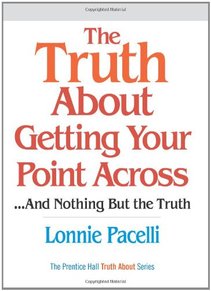I opened the interview with a simple greeting, offered Pug something to drink, and let him know what was going to happen in the interview. Before I could get my first question out, Pug informed me of his salary expectations and told me that there were other companies willing to meet his expectations. I can tell you his expectations were about two times what we typically paid newly degreed candidates and I knew we would never be able to pay Pug what he was looking for. I decided to acknowledge that Pug had a salary expectation and quite frankly went through the motions on the rest of the interview. I had already made my “decline” decision within the first few minutes of the interview.
Both performances had a common thread running through them. They both introduced compensation into the discussion before I had a chance to decide if I wanted them as employees. Now don’t get me wrong; compensation is a big component of why we work; the mortgage needs to be paid, the kids need braces, and the government wants their cut. You need to ensure you are compensated fairly for the work you do. However, there is an appropriate time to discuss compensation, and that is after the employer has already decided they want you and you’ve decided you want to be an employee. Before we get too deep in this, I’m going to make an assumption that you’ve done some basic homework on the job and that you’re not expecting to make $100k per year for a job that will pay $30k. If there’s that large of a gap, then either re-align your expectations or don’t go forward with the interviewing process.
Assuming there is a match in compensation expectations, your priorities in the interviewing process need to start with nailing the qualifications. Most successful advertising campaigns don’t show you the price of the product first then explain the value they provide. They get you to see how the product will meet some need that you have then they tell you how much it will cost you (and what a good deal it is for you!) Your interviewing strategy is no different; you want to show how you meet a need and how you can solve a prospective employer’s problem before discussing compensation. Once an employer understands your qualification and envisions your value to the company they are better able to focus on compensation. Want some ideas on how to nail the qualifications first? Check these out:
Excerpted from The Truth about Getting Your Point Across…and Nothing But the Truth
Lonnie Pacelli
Keynote Speaker | Board Director | Autism Advocate | Author | Project Management Expert | Microsoft/Accenture Veteran See his books on Amazon.
0 Comments
Leave a Reply. |
Topics
All
Reprints
Contact Lonnie about article reprints. Please specify article you wish to reprint. Backlist
See Lonnie's Amazon Author Page Archives
July 2024
|
Lonnie Pacelli - Building Thriving Leaders™
Insightful | Creative | Direct Advice to Help Leaders Help Themselves
Keynote Speaker | Board Director | Autism Advocate | Author | Project Management Expert | Microsoft/Accenture Veteran
See his books on Amazon
Insightful | Creative | Direct Advice to Help Leaders Help Themselves
Keynote Speaker | Board Director | Autism Advocate | Author | Project Management Expert | Microsoft/Accenture Veteran
See his books on Amazon
Services |
About
|
© COPYRIGHT 2019. ALL RIGHTS RESERVED.
We are a participant in the Amazon Services LLC Associates Program, an affiliate advertising program designed to provide a means for us to earn fees by linking to Amazon.com and affiliated sites.
|


 RSS Feed
RSS Feed